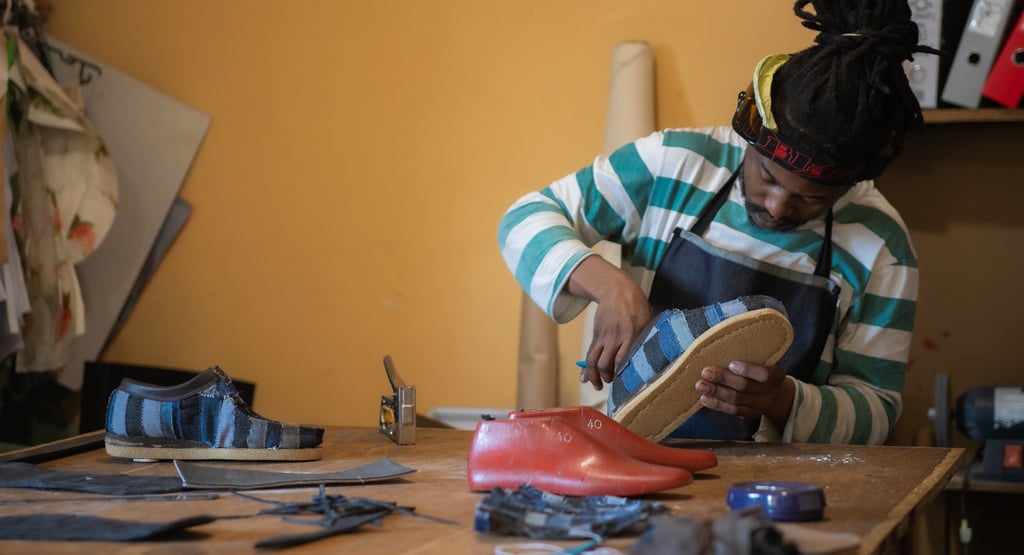The Missing Piece in South Africa’s Education and Job Creation Puzzle
This blog explores South Africa’s unemployment crisis through the lens of education and skills development. Sicelo Siyabonga Mabuza shares his personal journey, reflecting on the gaps in higher education and the loss of artisanal training institutions. He argues that true empowerment comes from practical, hands-on learning — not just chasing grades — and highlights the massive opportunity in industries like footwear. With 73% of shoes imported into South Africa, local youth can create real impact if given the right training platforms. This post calls for a reimagined system that produces creators, not just job seekers.
Sicelo Siyabonga Mabuza
8/21/20252 min read


Every day on my way to work, I hear the same stories on the radio: “The unemployment crisis in South Africa is surging… The IMF is urging job creation… The government is partnering with businesses investing billions to tackle the job crisis…”
And every time, I ask myself the same question: what about the skills behind all these efforts?
We have more graduates today than in previous generations, yet the crisis continues. In my view, one major reason is the death of artisanal higher institutions. People learn better through practice, but our system has become obsessed with marks, exams, and ticking boxes instead of developing portfolios and practical mastery.
When I was in varsity, I spent my time chasing grades, making sure assignments were submitted and exams passed. Yes, I graduated — twice — but in truth, it did little for me until I started my journey in entrepreneurship. That’s when I truly began to learn.
The Problem with Our System
The way our education system is structured, with its colonial legacy, undermines us. Higher institutions have the resources to empower students, but the curriculum doesn’t push us to build track records or portfolios. Imagine if students were required from day one to build a portfolio. By graduation, they’d have a body of work, not just a certificate.
Instead, many of us leave varsity as just another statistic. We rush to finish, but lack the acumen, character, and evidence of ability that employers or investors want. Looking back, I missed countless opportunities and resources that could have set me up earlier for success.
What Entrepreneurship Taught Me
Through entrepreneurship, I learned more than I ever did in classrooms. It gave me perspective on how broken the system is, and how many young people are trapped in it. I wish the advocates of Fees Must Fall had also challenged the content and structure of the education system, not just the cost. Because the real loss is how it leaves our youth unprepared for real-world opportunities.
Social media today is powerful enough to drive change, but we don’t see enough people raising their voices about this. Our communities deserve more, an education system that blends knowledge with practical, marketable skills.
The Opportunity in Footwear
Take footwear, for example. It’s a practical, fast-growing industry. But did you know that about 73% of shoes consumed in South Africa are imported? That’s in a R54 billion industry. The implication is clear: there’s massive opportunity for local youth if they’re trained in well-equipped institutions by experienced practitioners.
Government and private investment could make real impact by channeling billions into practical training programs instead of just traditional classrooms. Businesses like ours at Homegrown Shandis have already piloted such models. Our first rollout of a fully sponsored training program received 1300 applications, proof of both the demand and the hunger for opportunity.
A Call to Action
What this tells me is that South Africa doesn’t lack talent. It lacks practical platforms and visionary systems. Imagine a collaboration that merges resources, heritage-driven design, and entrepreneurship into one movement. Imagine building portfolios instead of just graduates.
That’s the vision. And it starts with simple, community-rooted initiatives that show our youth they can be more than job seekers, they can be job creators.

